Results 1 to 10 of 17
Thread: Packwood!!!!
-
11-16-2013, 10:22 PM #1Senior Member

- Join Date
- Aug 2013
- Location
- NYC, NY
- Posts
- 1,496
Thanked: 169 Packwood!!!!
Packwood!!!!
I've been trying to get my hands on this thing for months! Finally!! Out of all sandpaper, to be continued once I find some appropriate grits in this godforsaken city...
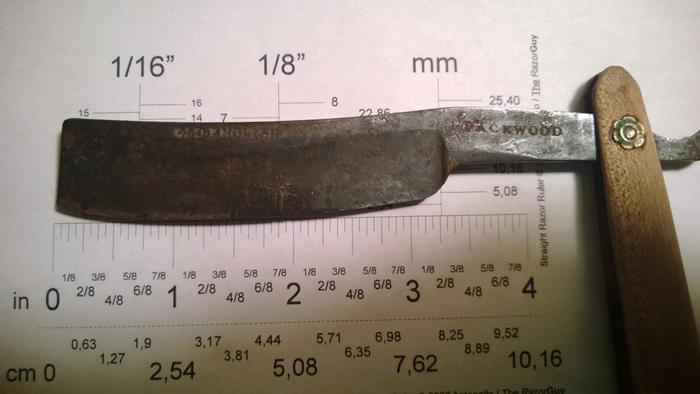
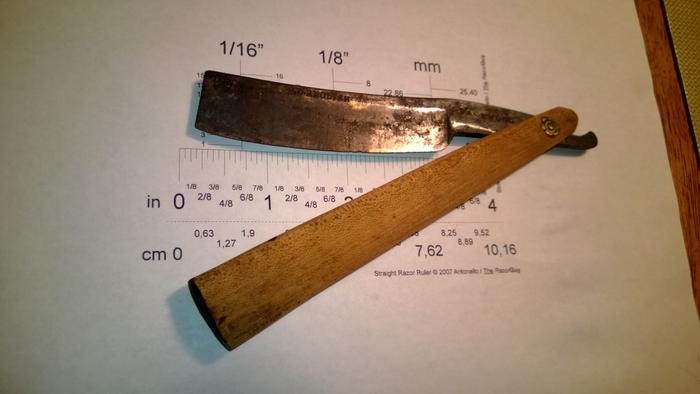
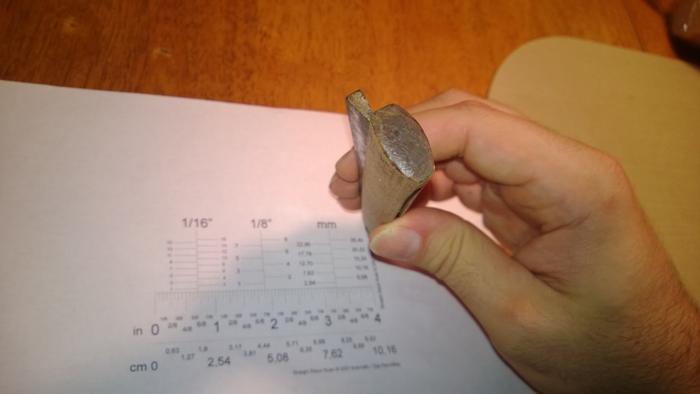
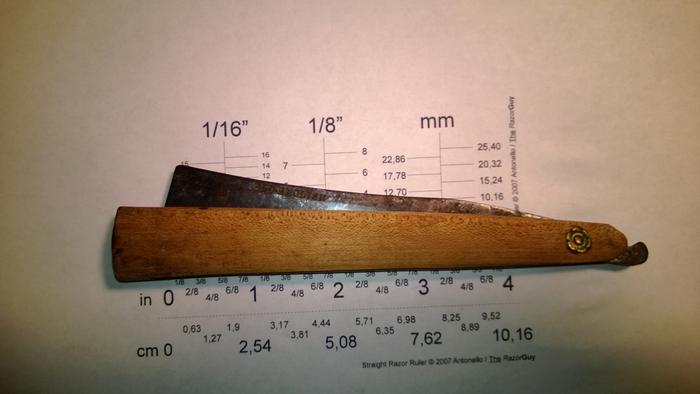
-
11-17-2013, 01:49 AM #2Senior Member

- Join Date
- Aug 2013
- Location
- NYC, NY
- Posts
- 1,496
Thanked: 169
Been at it for a few hours
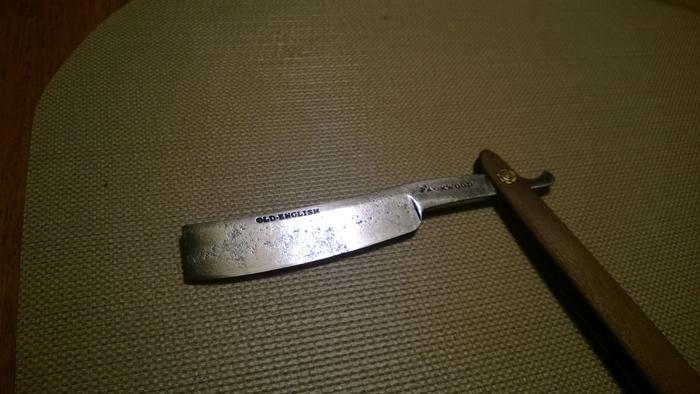
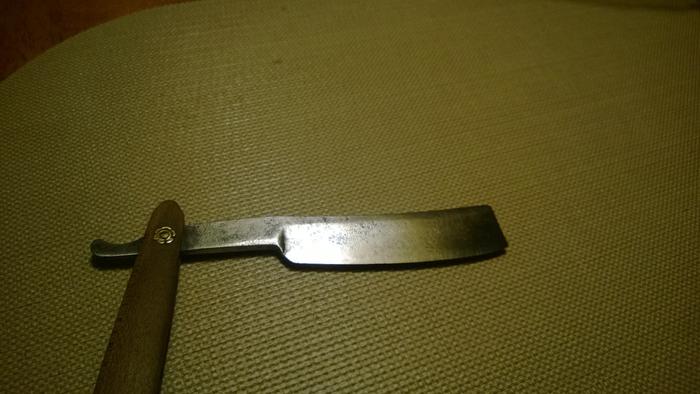
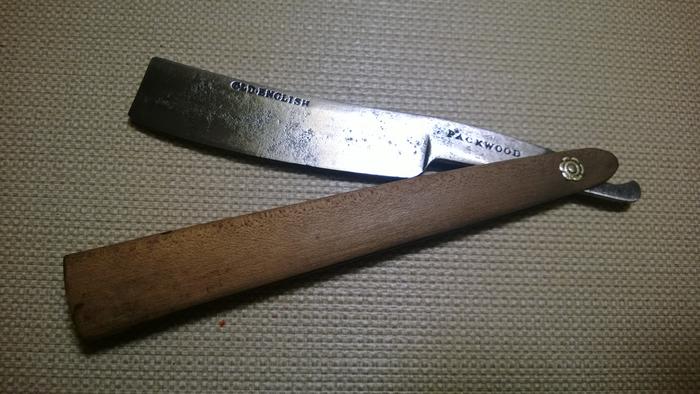
-
11-17-2013, 03:17 AM #3

That's going to be one nice razor when you're done! Keep us posted.
-
11-17-2013, 04:13 AM #4Senior Member

- Join Date
- Aug 2013
- Location
- NYC, NY
- Posts
- 1,496
Thanked: 169
Anyone have a guess on who might have made this one for packwood? It looks like some John Barbers I've seen, but IDK...
Last edited by kcb5150; 11-17-2013 at 04:17 AM.
-
11-17-2013, 05:33 AM #5Senior Member

- Join Date
- Aug 2013
- Location
- NYC, NY
- Posts
- 1,496
Thanked: 169
I meant to ask, was this a common scale style for the period? Moreover, what would you guys recommend for a finish? Gun stock finish? The scales were liberated of any finish LOOOONG ago... Thankfully the wood is still good.
-
11-17-2013, 07:30 AM #6The First Cut is the Deepest!


- Join Date
- Feb 2010
- Location
- Upper Middle Slobovia NY
- Posts
- 2,736
Thanked: 480
I have always been a fan of Spar varnish, or Tung oil on woods. Some guys like using CA glue to seal it up.
-
11-17-2013, 08:15 PM #7

It was a very common style in the early 1820's. John Barber seems to have been the one who popularized it (with the OLD ENGLISH stamp), but Isaac Barber also made them, as well as Thomas Scargill and a few others. Most likely, it was a style produced by one of the Little M'esters who worked for several different manufacturers. There's absolutely no way to know now.
They're not the original scales. Most likely they were replaced sometime in the last 50-100 years. Original wood scales on English razors are extremely uncommon. My guess is that they're rare simply because there was a huge support industry build around cutlery production. That meant there was a dedicated industry for making scales for razors and they historically were made with horn, tortoise or ivory. There just weren't as many people with the experience working wood who also made scales. But that's just a guess. It may also have been because the finishes that were available in the late 1700's when the industry really gelled into place were unsuitable for the high-moisture environment of a lathered face.-Zak Jarvis. Writer. Artist. Bon vivant.
-
11-18-2013, 02:50 AM #8Senior Member

- Join Date
- Aug 2013
- Location
- NYC, NY
- Posts
- 1,496
Thanked: 169
Hmm... When did one piece slotted wooden scales such as these first make an appearance? I think these are mahogany.
-
11-18-2013, 03:32 AM #9The First Cut is the Deepest!


- Join Date
- Feb 2010
- Location
- Upper Middle Slobovia NY
- Posts
- 2,736
Thanked: 480
Even if they are not original scales, somebody took the time and care to put pretty petal style washers on the pivot. Could very well be original washers, if nothing else. If you dont object to the scales, nothing else matters!
-
11-18-2013, 03:42 AM #10Senior Member

- Join Date
- Aug 2013
- Location
- NYC, NY
- Posts
- 1,496
Thanked: 169
The scales actually suit it, plus they have no splits, cracks or warps. Once I cleaned all of the rust off of it and out of the pivot they fit the razor like a glove. They just need restoration like the rest of it. The washers really are what had me terribly confused about them. Most every stubtail I've seen has had horn scales that are yellow at base but have some sort of blackening going on I suspect was intentional.


 12Likes
12Likes LinkBack URL
LinkBack URL About LinkBacks
About LinkBacks






 Reply With Quote
Reply With Quote

